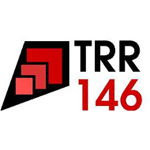
Seminar über Theorie der kondensierten Materie / TRR146 Seminar
Nov. 9, 2017 at
10:30 a.m.
in
Newtonraum, 01-122, Staudingerweg 9
F. Schmid
friederike.schmid@uni-mainz.de
P. Virnau
virnau@uni-mainz.de
L. Stelzl
lstelzl@uni-mainz.de
On the generalized generalized Langevin equation : a non-stationary approach of the Mori-Zwanzig formalism
Hugues Meyer (Université du Luxembourg)
As a researcher in statistical physics, one may often be interested in reducing the complexity of a many-particle system to the study of a set of relevant observables (for instance, the system could be a polymer melt and the aim could be to develop a rheological model). This procedure is called coarse-graining as soon as the timescale of these variables is much larger than the microscopic timescale. A systematic way to derive an equation of motion for these observables from the microscopic dynamics is known for some time as the Mori-Zwanzig formalism and leads to the generalized Langevin equation. In contrast, if the dynamics is not stationary, it is not a priori clear which form the equation of motion for an averaged observable has. We adapt this formalism to derive the equation of motion for a non-equilibrium trajectory-averaged observable as well as for its non-stationary auto-correlation function. We also derive a fluctuation-dissipation-like relation which relates the memory kernel and the autocorrelation function of the fluctuating force. In addition, we show how to relate the Taylor expansion of the memory kernel to experimental data, thus allowing to construct the equation of motion from direct measurements. We finally illustrate this method on various simple examples.